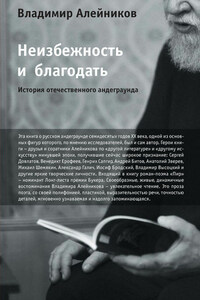COPYRIGHT
The Friday Project
An imprint of HarperCollinsPublishers 1 London Bridge Street London SE1 9GF
www.harpercollins.co.uk
First published by The Friday Project in 2015
Copyright © Dan Richards 2015
Cover Layout Design © HarperCollinsPublishers Ltd 2015 Cover by Stanley Donwood
Dan Richards asserts the moral right to be identified as the author of this work
A catalogue record for this book is available from the British Library
All rights reserved under International and Pan-American Copyright Conventions. By payment of the required fees, you have been granted the non-exclusive, non-transferable right to access and read the text of this e-book on-screen. No part of this text may be reproduced, transmitted, down-loaded, decompiled, reverse engineered, or stored in or introduced into any information storage and retrieval system, in any form or by any means, whether electronic or mechanical, now known or hereinafter invented, without the express written permission of HarperCollins.
Source ISBN: 9780008105211
Ebook Edition © March 2015 ISBN: 9780008105228 Version: 2015-09-11
LIMINAL SPACE
In the summer of 2006 I moved to Norwich from my family home in Bristol to begin a Creative Writing MA at the Art School.
It was a year since I’d graduated from an English Literature and Philosophy BA at the University of East Anglia. I had spent the intervening months working in a bookshop staffed entirely by graduates sheltering from an indifferent world, presided over by a weirdly ageless Brylcreemed man who, when he wasn’t smoking on the roof – arcing his dog-ends languidly into the yard of the adjacent church – would lock himself in his attic office or materialise at your elbow to relate how his father nursed the captive Rudolf Hess.
The shop had a very limited selection of Art books and an even meaner smattering of Photography and Transport.* There was no demand, we were told, and it was this message that we passed on to any customer who enquired, taking great pleasure in directing them up to the ‘better stocked, less expensive shop’ at the top of the road (‘where we would much prefer to work’).
I had no idea what I was doing at the shop but day after day I’d be there, going through the motions of retail. I’d reached an impasse. It was relatively easy work and brought in a small wage, which I’d eke out during the week so I could catch a train to the South Coast to see my girlfriend at weekends. Sometimes I’d get to Brighton and she’d be happy to see me. Sometimes not. Sometimes she’d say, ‘I’m not sure how I feel about you being here … turning up like this …’ and I’d freeze there on the doorstep; tired and punctured, foolish – as if I’d spoilt the most simple of tasks: just turn up and don’t be shit.
Life in Barcelona-on-Sea unravelled as a mess of well-meant gestures and hissed upset. I was sure we had it in us to be happy but we weren’t; we really weren’t.
This went on for months.
I’d think about us all the week while stickering 3 for 2s or directing people up the road, but in my head she smiled more and shouted less.
In retrospect I’d been sleepwalking through many things. She left fairly suddenly. She had indeed been unhappy for a long time. I received a postcard quoting Virginia Woolf’s suicide note as an unequivocal gesture of severance.
That was it.
I moved up to Norwich earlier than planned and drank a lot of gin on my own in a conservatory.
Then I got a cat.
Then I got a night job washing dishes in a pub.
I’d return home in the small hours covered in sink dross, drink more gin and complain to the cat about love.
It became clear that I needed direction, to begin something new, or I’d go mad, fill my sink-drossed smock with bricks and throw myself into a pond.
I threw myself into the art school instead.
• • • • •
In the weeks before term started, I began working in the Student Union bar – a large timber-beamed hall above the canteen – a building which put me in mind of St Pancras Station, all mustard brickwork, corkscrew chimneys and gothic arches; an eccentric building which seemed to embody the idea of an art school.
Accessed up a spiral staircase in a turret tucked away, the bar had a welcoming, secret feel and it was always great to see freshers double-take on first discovery, as I had – caught out by the size of the space, drawn in by the warmth towards the silhouetted people clustered around long tables and stood at the bar while candle shadows flickered the roof joists high above.








